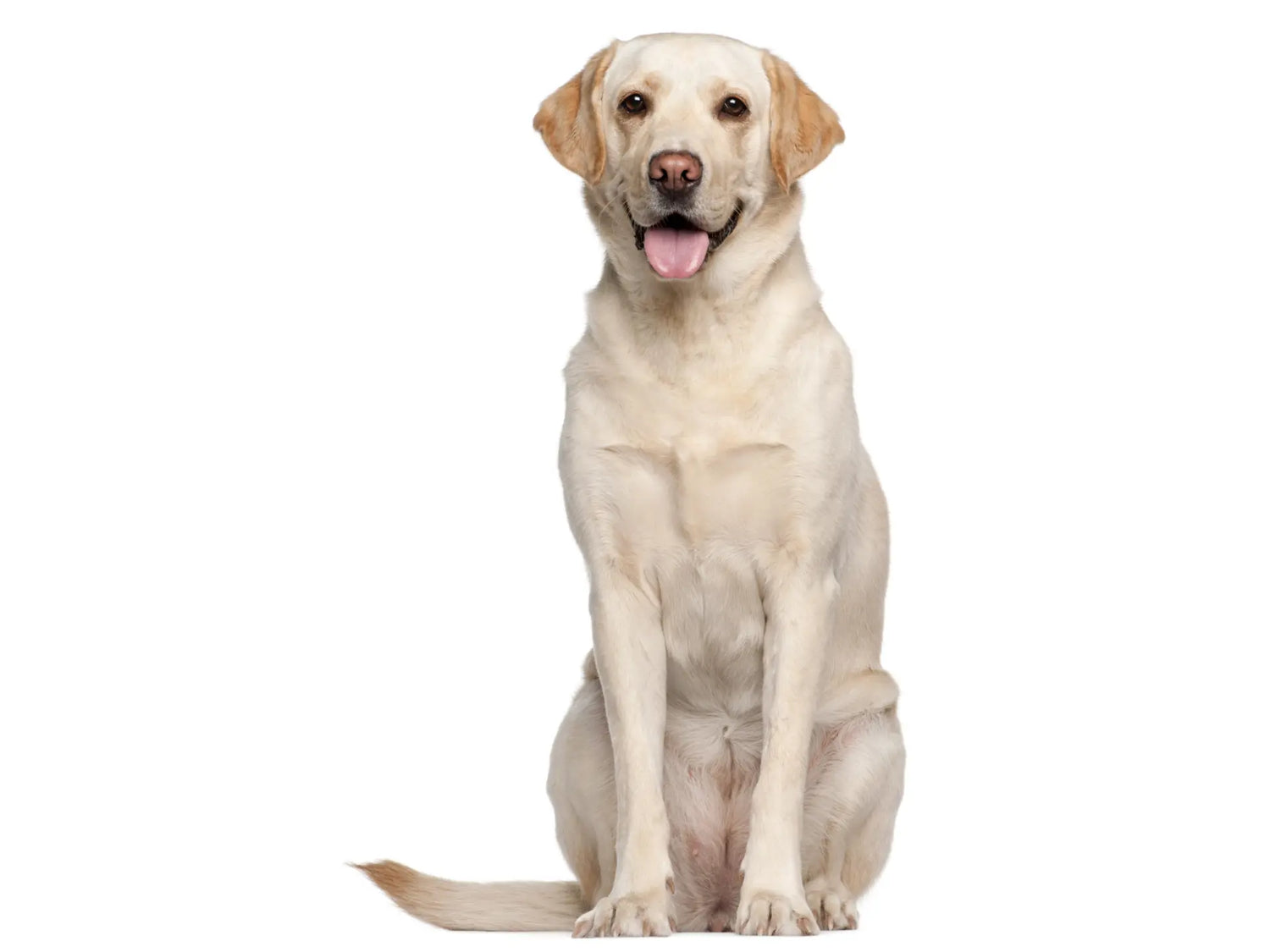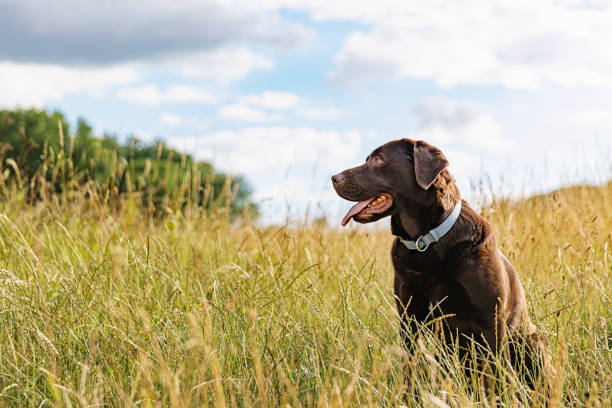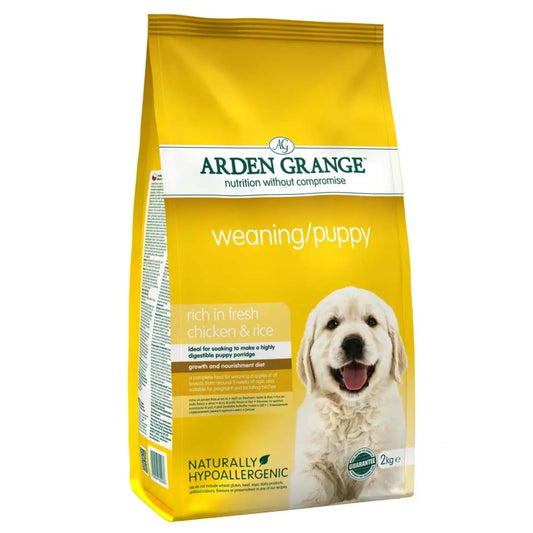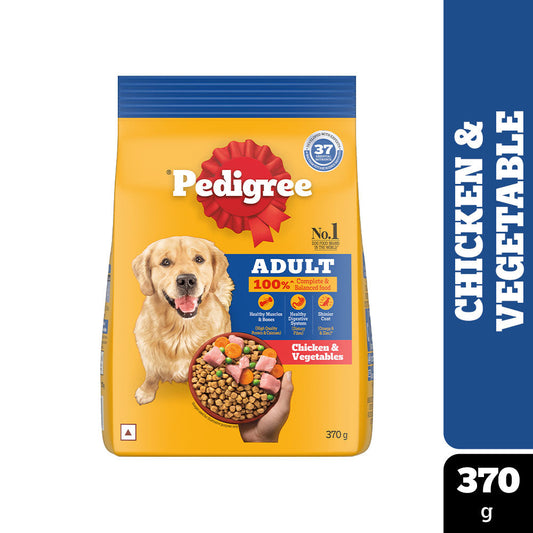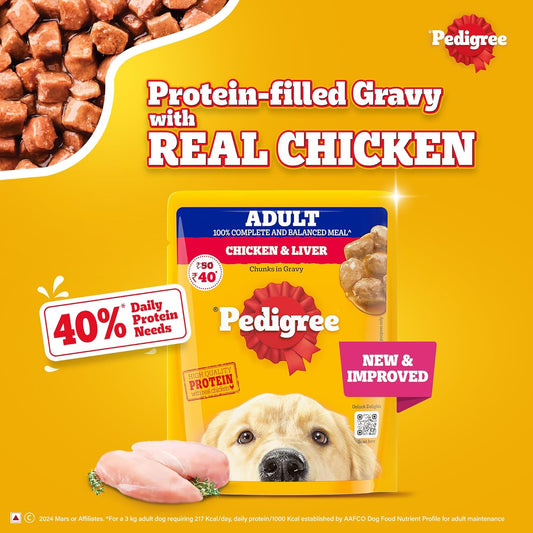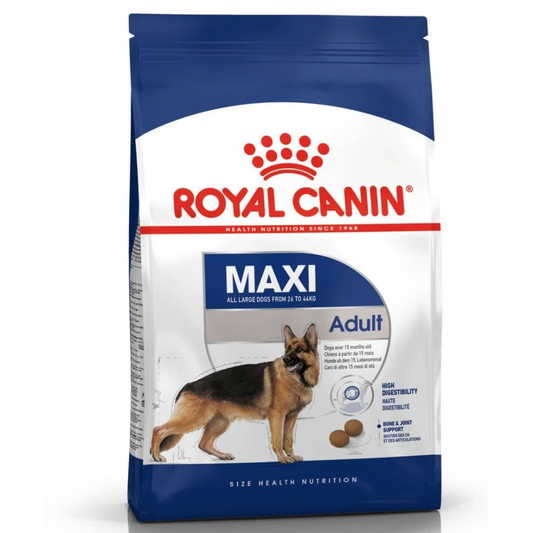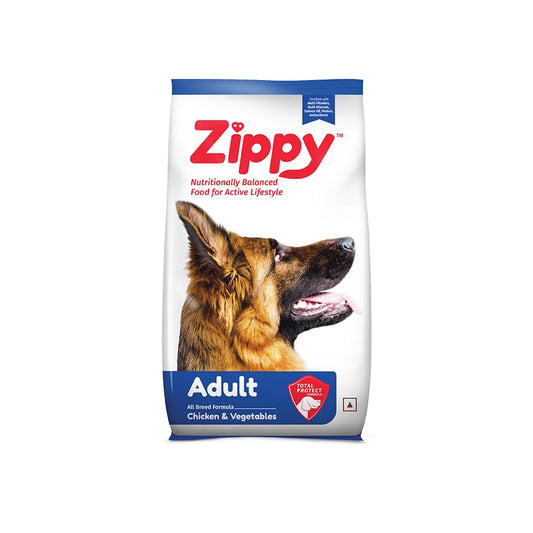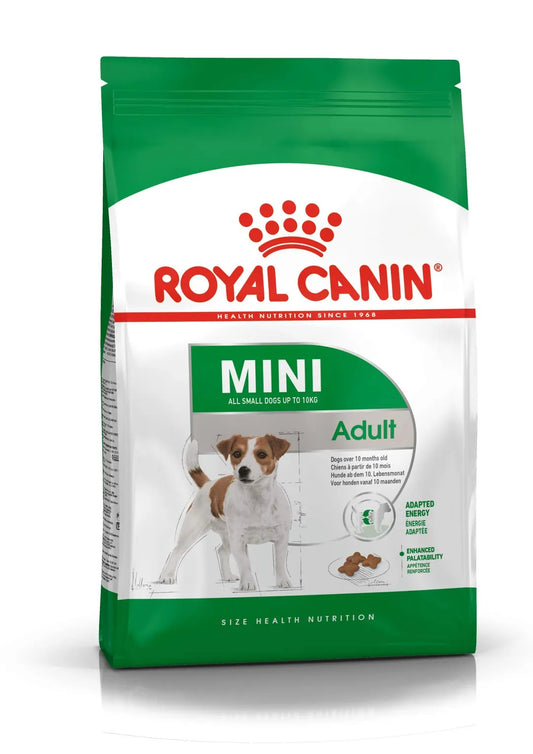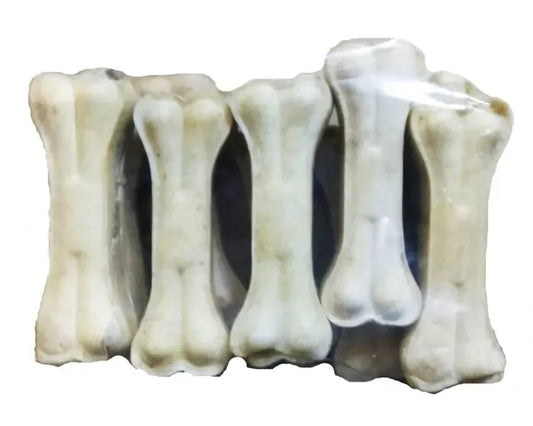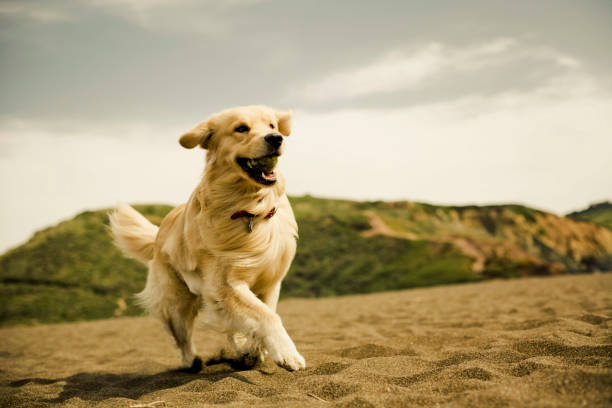You will not be allowed to compare more than 4 products at a time
View compareLabrador Retriever
Average sizes and life expectancy of the breed
55-62 cm
25-36 kg
10-14 years
United Kingdom and Canada
Pure
Sporting
Characteristics of the Labrador Retriever
One of the most popular dog breed across the world, Labrador Retrievers are cute, friendly, loyal and intelligent. They are affectionate with children and are highly cheerful making it one of the best family dogs. Historically considered as a “working dog”, Labrador Retrievers are also intelligent which makes them very easy to train. Bred in the 19th century in Canada, he was widely used as a "fishing dog" back then. Today, he is a sought-after dog breed when it comes to having a pet that is super-friendly.
Coat
The Labrador has two layers of coat that helps in regulating their body temperature. One is the top layered coat called Guard Coat, which is a bit wiry and abrasive. Underneath it, is a softer and lighter coat called undercoat, that keeps them warm during the winters. Regarding the colour of their coat, Labrador is most commonly seen in golden colour, though there are also (and accepted) variations in black and chocolate. Even though labs have a short coat, they do shed a staggering amount of hair throughout the year. So you will have to take a fair bit of time from your schedule for their grooming. To reduce the problem of shedding, brush them at least once a week during off-season and twice a week during spring, when the hair fall is quite prominent. Also, give them a diet rich in Omega fatty acids, that strengthen their hair follicles, resulting in less shedding.
Recommended Treats for Shih Tzu
Arden Grange with Chicken Weaning Puppy Food 2 Kg
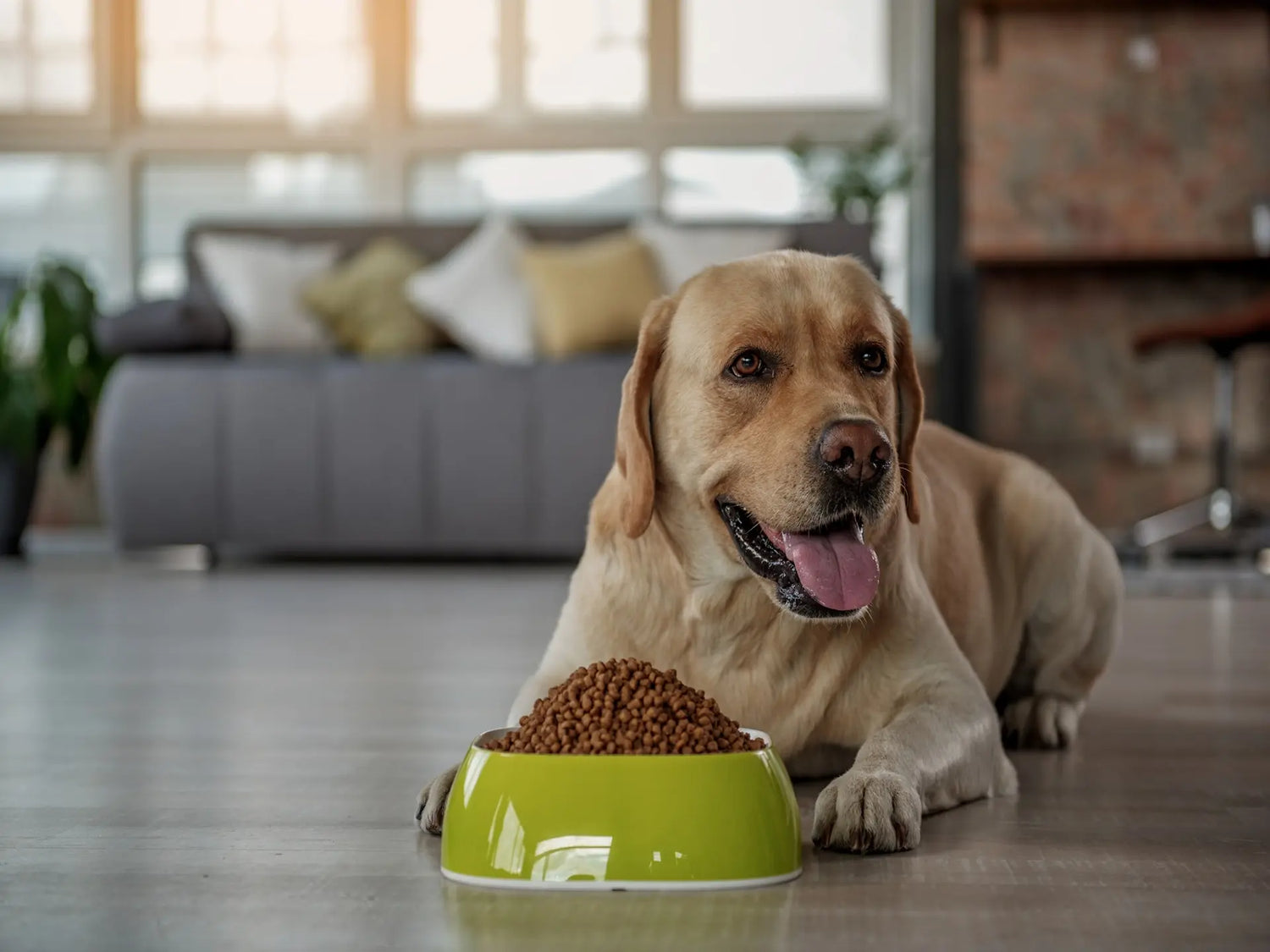
Recommended Treats for Beagle
Recommended Treats for Beagle
Arden Grange with Chicken Weaning Puppy Food 2 Kg
Grooming Your Labrador Retriever
Labradors have a type of coat, having a higher chance of dirt and debris getting accumulated. To tackle this problem, owners should bathe this breed once every month and comb their hair, a day before their bath. Using a high quality dog shampoo will help you to remove excessive dirt and also in restoring the natural sheen of the skin. Lastly, grooming of a Labrador can't be complete without clipping their nails. It is necessary to clip your lab's long nails, as it can force the foot pads apart, making it difficult for the dogs to walk. Having said that, always clip their nails safely and slowly so that you don't hurt them. Coming to the brushing part, you need to have a nylon bristle brush that can stimulate the oily skin of lab dogs, apart from keeping their hair clean. This stimulation of dog's skin helps in good blood circulation, which in turn keep their coat healthy and shiny.
Taking Care of a Labrador Retriever
The Labrador's ears need special care, as they are quite prone to otitis. Also, overweight and obesity are common to the breed and hence, the owners should be vigilant of it. Always offer that much amount of food which is indicated by your trusted veterinarian which will help you maintain excellent weight in the labs. Encourage your pet to do physical activities daily, so that they burn the extra calories, if any. When it comes to food, Labradors can be voracious. Do not give in, as this habit can be a problem in the long term. Lastly, if your Labrador is showing signs of dysplasia, prevent him from walking on very slippery floors and talk to a professional to find out if it's time to start with supplements or specific medications for this problem. If your Labrador is showing signs of dysplasia, prevent him from walking on very slippery floors and talk to a professional to find out if it's time to start with supplements or specific medications for this problem.
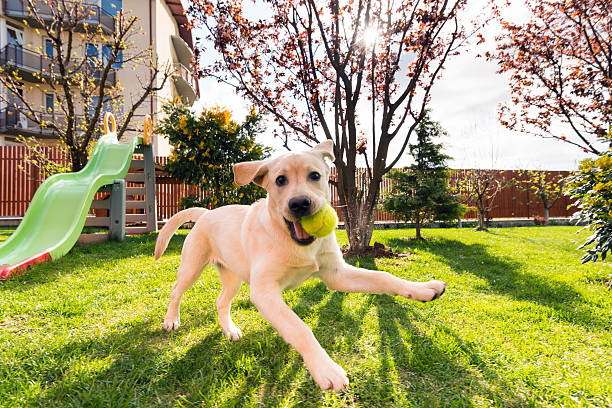
Health
The Labrador retriever is usually a healthy dog, but genetic problems do exist in this breed. Some of the health issues Labrador Dogs face are Joint Problems, Bloat, Obesity, Heart Diseases etc. Ear infections can also be frequent due to their drooping ears. Keep an eye out if your Labrador scratches his ears a lot, shakes his head and/or gives his attention to one side more often. Also, this breed has a huge tendency to be overweight. So give them the right portion of food and also do not miss out on their daily exercise requirements. If you see unusual behaviour in your labs, consult a veterinarian immediately.
Curiosities
The ancestors of Labradors were used for fishing, as their water-resistant double coat and webbed feet made them perfect swimmers. Regardless of their parents' colour, a single litter of Lab may consist of black, yellow and chocolate puppies. Labs are excellent guide dogs, therapy dogs, service dogs and above all, great family dogs. Labradors are known for their quick sprints and can hit a speed of 20 Km/hr in just 3 seconds!
Intelligence
Labradors are recognised for their high intelligence. They are always ready to please their human parents, and they tend to learn quickly and easily. Labs are also known for showing that they have correctly understood a new command by repeating the “trick” whenever the word is heard. Labradors are a loyal breed and, therefore, they obey easily. This breed is often used as a guide dog, helping people with special needs on a daily basis. The choice is due to the fact that they are affable and highly trainable as well.
Temperament
The Labrador is usually a great friend to everyone. Although there may be differences regarding the temperament of some labs, it is expected that they will be very friendly even with those they do not know. Give them enough public space as Labradors love to interact with people. They also get along very well with other animals when properly socialised from a young age. Playing in the water is often their favourite - as it harks back to the breed's early roles.
Lifetime
The life expectancy of a Labrador puppy is between 10 and 14 years. By giving them nutritious foods, proper exercise and a regular vet visit, you can keep the labs healthy and happy for a long time.
Frequently Asked Questions
Where is the origin of Labrador Retrievers?
Labrador Retrievers have their origin in Newfoundland, Canada. They were bred as working dogs to retrieve game for hunters, but today they are one of the most popular dogs in the world.
What kind of temperament do these dogs have?
Labradors are one of the most friendly dogs you will ever find. They are also intelligent, obedient and great people pleasers which makes them easier to train. They are also known to get along with other dogs pretty quickly.
Are Labrador Retrievers friendly with children?
Yes absolutely. Labradors simply just love children and they can play with them endlessly. The fact that they are good with kids makes them one of the best family dogs to have in small and big households.
What kind of nutrition does this breed require?
As Dachshunds have a fast metabolism, they need a power-packed diet rich in protein, fats and essential vitamins and minerals. However, these dogs are significantly vulnerable to obesity and thus, they should not be overfed at any cost.
Can I feed my Labradors home cooked food?
Lab owners shouldn’t feed their dogs home cooked foods as they often fail to meet the nutritional needs of this breed. Besides, many home-made recipes aren’t balanced which can trigger digestive issues in these dogs. It is always a good choice to feed these dogs breed-specific diets designed for their growth and wellbeing.
What are some of the best foods for Lab puppies?
As labrador puppies eat a lot, they need a diet loaded with good calories and should contain vital nutrients like Protein, Fats, Carbohydrates, Essential Vitamins etc. Some of the best foods for Lab puppies are Royal Canin Labrador Puppy, Pedigree Pro Large Puppy, Fabled Gentle Giants, Large Breed Puppy, Orijen Puppy Large Breed, Acana Puppy Large Breed etc.
Are Labrador Retrievers easy to train?
Labradors are highly intelligent and pleasing, making them easy to train. Their will to do things just to get the reward is helpful while teaching them tricks. It is advisable to start the training from simple commands like Sit and Stand, and then on to the more complex ones.
Do Labradors bark a lot?
Like most other breeds, Labs too bark for a variety of reasons. The main reason why a lot of Labs bark is due to a lack of physical and social stimulation. All owners of this breed should give them an hour to play so that they can channelise their pent-up energy into some activity
Are Labradors good apartment dogs?
Labradors can live in an apartment, provided that they get enough exercise and mental stimulation daily. First time owners should know that these dogs are highly energetic and require at least an hour of extensive playing daily.
Which toys are favourite for labrador puppies?
Some of the toys which Labradors just love to play with are Kong Toys, Rope Toys, Fetch Balls, Soft Toys, Plush Toys etc, which are highly entertaining and stimulating for these breeds.
Do Labs shed?
All Labradors shed. Their dense coat over time paves way for excessive hair fall and it is important to regularly groom them. Dead undercoat when removed keeps strong hair and roots. Occasional bath also maintains healthy skin and coat.
How often should I groom a lab dog?
As labs have a short, dense coat, they need regular brushing to control shedding and to keep their skin healthy and shiny. They can be bathed once in a month to avoid that doggy smell which persists around the house.
How much exercise does a Labrador need?
A healthy adult Labrador needs a daily physical activity of up to 1 hour. This is because they are a highly energetic breed who were initially bred for retrieving games for hunters. This natural instinct still remains on the breed and due to this reason, they need a good amount of walking and running.
Do Labradors have a tendency to gain weight?
Yes, these breeds can quickly gain weight if they are overfed. Also, Labrador Retrievers are voracious eaters and will never make you feel that they are full. Hence, owners should always feed them as per the feeding guidelines given at the back of the dog food.
Why do Police and Military use Labrador dogs?
The Police and Military use Labradors because these are highly intelligent dogs. Besides, their curiosity coupled with their fast learning skills make them perfect dogs for rescue operations, explosive and drug detection.
Do Labrador Retrievers experience separation anxiety?
Yes, Labradors can experience separation anxiety, especially if they are left alone for long periods. They are a social breed and love the attention from humans constantly.
Our team is available at (Mon-Sat, 10 AM to 7 PM): 87440-12035/53 (sales) 87440-12036 (support) support@petsworld.in

